How a British entrepreneur became a Russian farmer
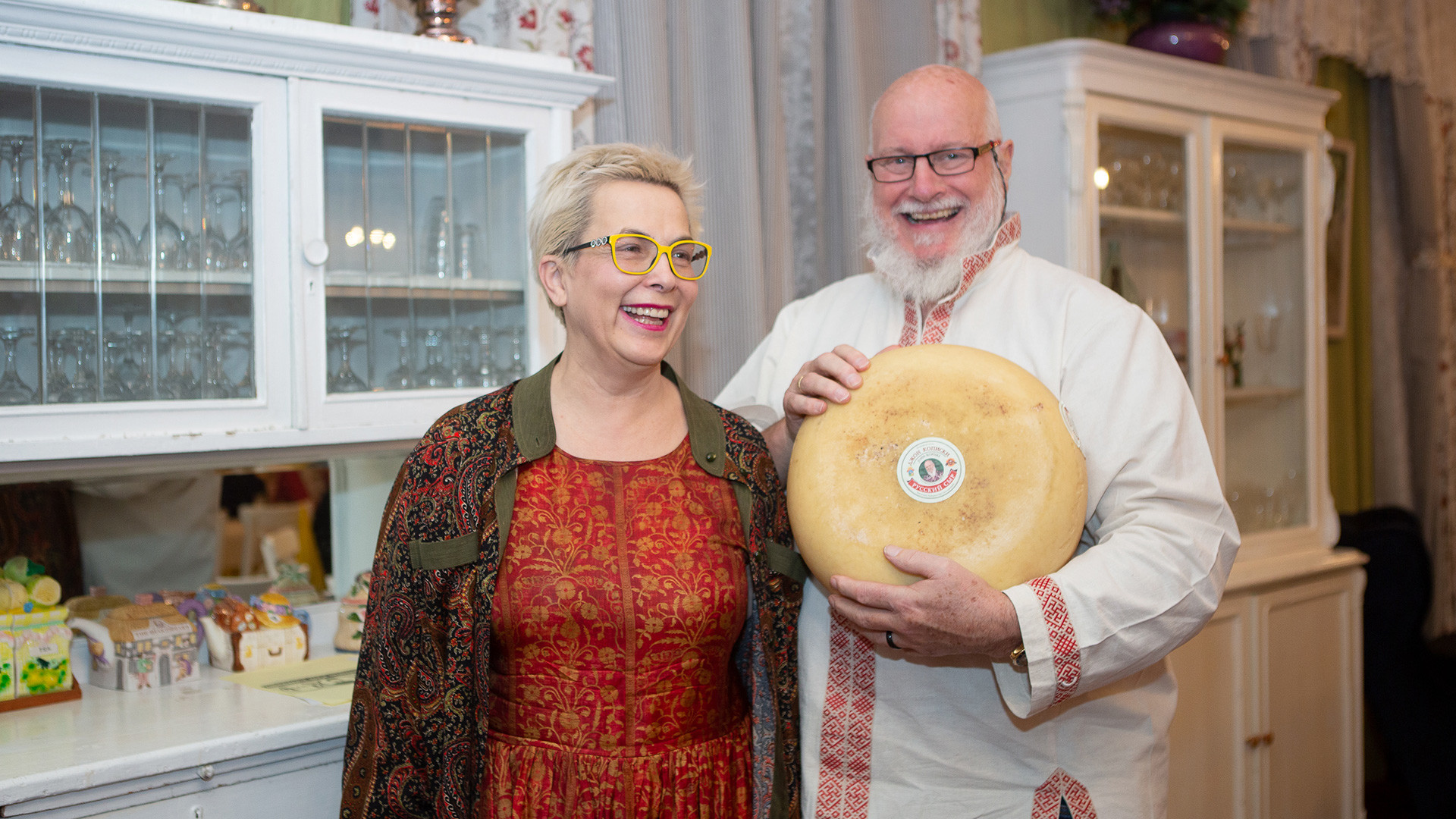
John and Nina Kopiski.
Gastronomic Map of RussiaThe old village of Krutovo, in the Pushkinsky district (120 kilometers from Moscow, Vladimir Region) is one of those places you’re tempted to refer to as the “Russian hinterland”. Vast fields that stretch beyond the horizon, the curved shores of the Klyazma River, different-colored houses with carved frames and wooden churches overlooking it all.
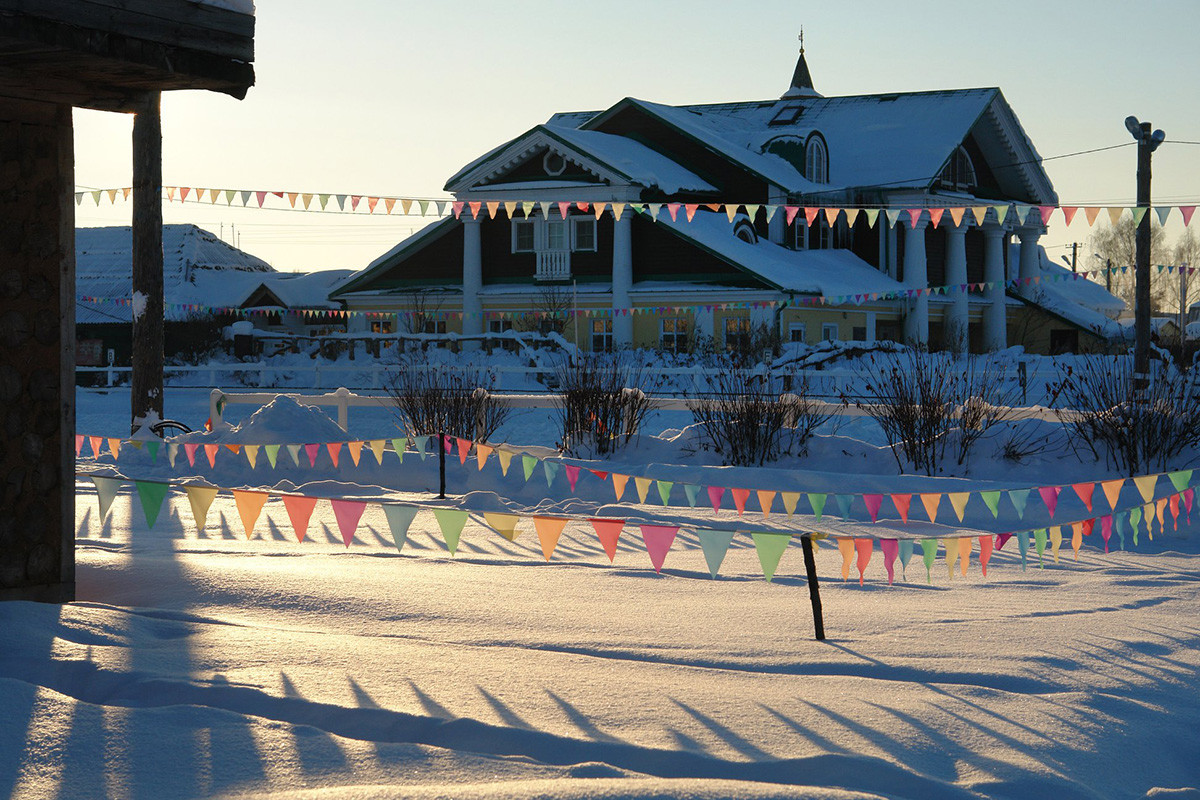
This is where you’ll find former British entrepreneur John Kopiski’s Russian-style mansion. The man is now a full-fledged farmer with a Russian passport. We decided to find out if his cheeses and syrniki are as good as we imagined.
‘Kolkhoz’ tourism
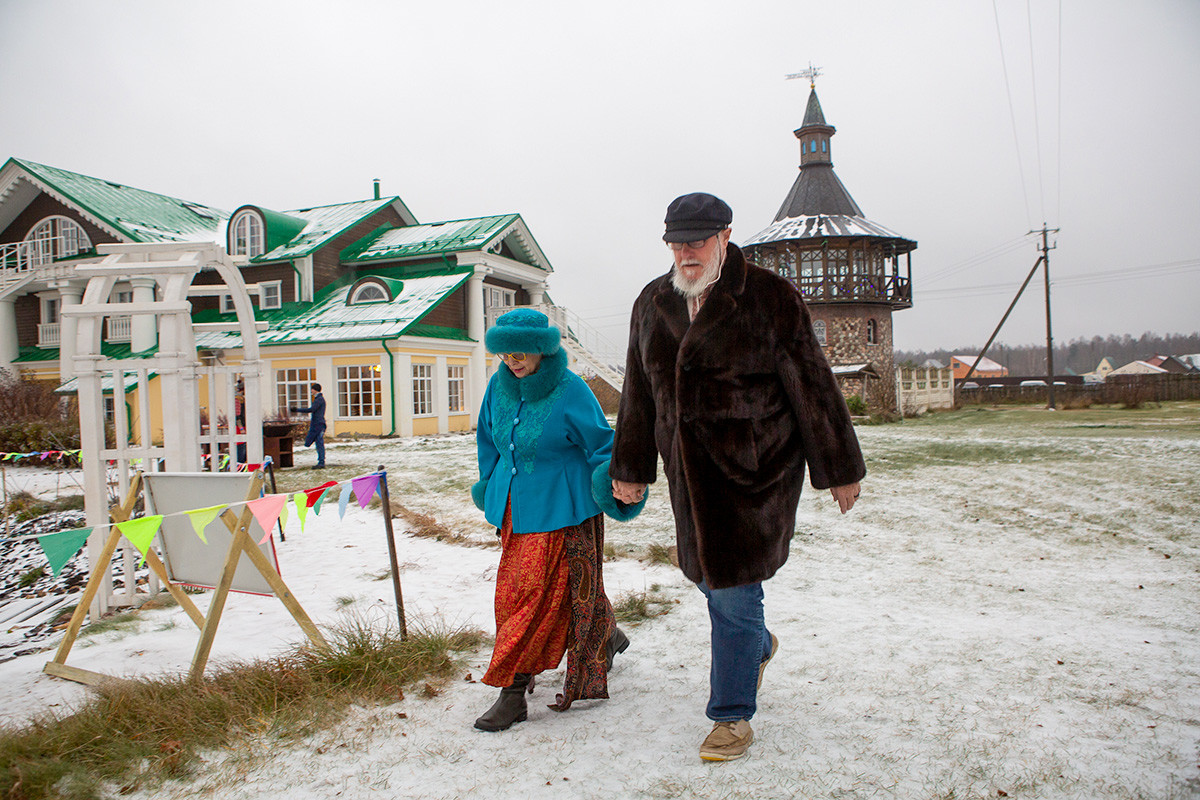
“There used to be an abandoned Soviet kolkhoz (collective farm) here,” John’s charming wife, Nina, explains. She’s wearing a bright-blue coat with a fur collar in the old style as she shows us around her property. “We’ve built an agro-touristic complex here - the ‘Bogdarnya’. The place can be visited by children and adults alike to partake in fun activities like horseback riding, taking walks around the vicinity and eating great food, while taking a vacation from city life.”
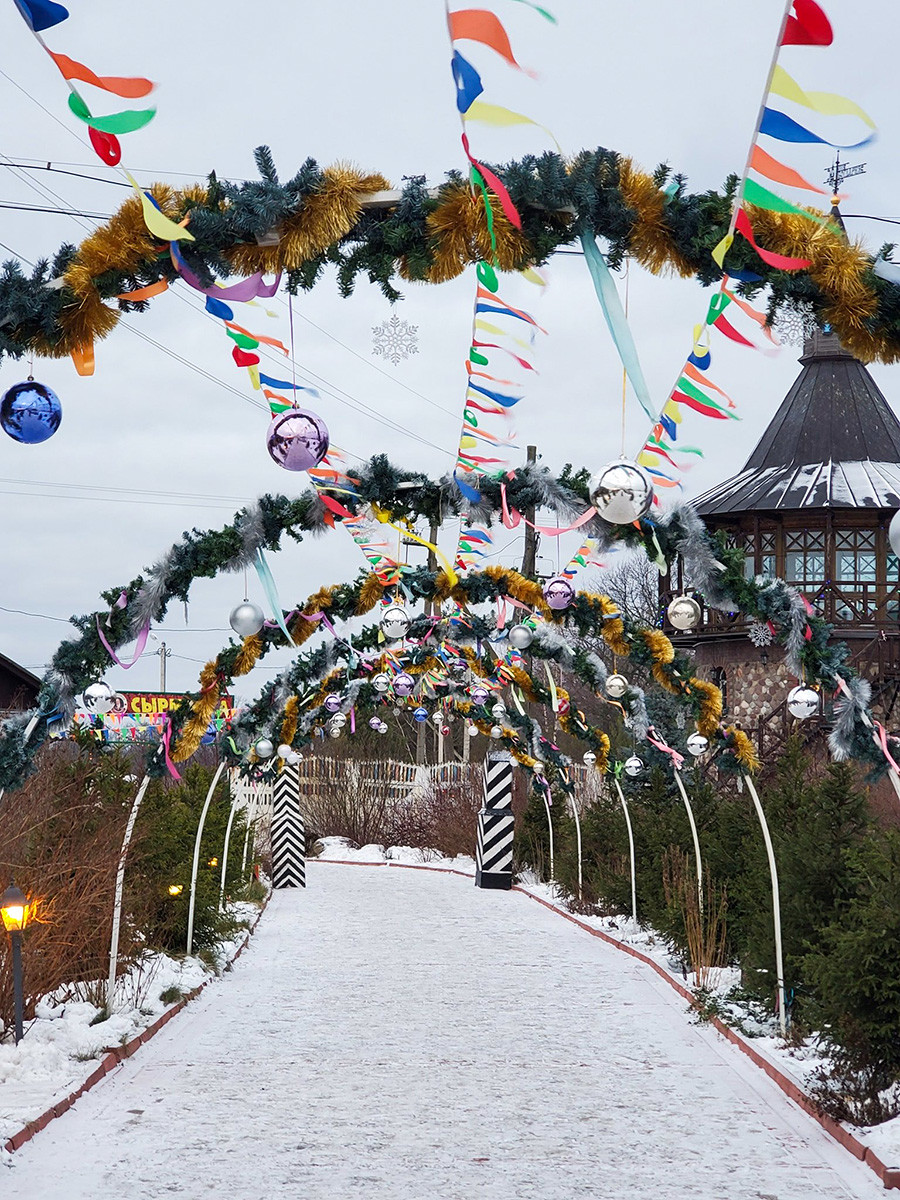
Old buildings were preserved, to the extent that it was possible: The old tower with a wing used to house manure, while today, it’s been converted into a sauna for the guests. The cow shed became a fully-fledged restaurant - one can only guess at its past from the shape of the building; there’s no smell (thankfully), while inside, you will see ordinary chairs and tables decorated with Soviet symbology. The wooden houses, meanwhile, have been converted into hostels. “A couple more old houses were brought in from Arkhangelsk Region and are being put together piece by piece right now; we plan to live there in the future,” Nina Valeryevna says. She is an architect by trade and the entire landscape design was actually her brainchild.
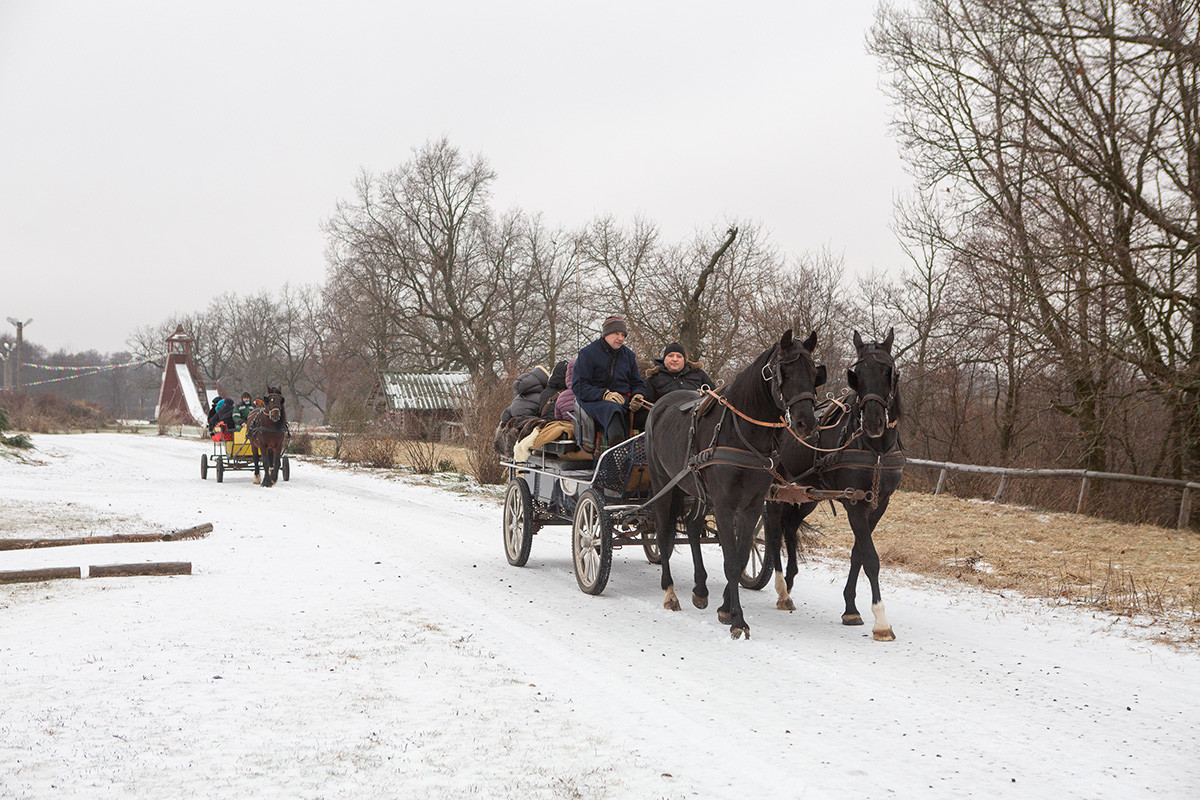
The central spot on the farm is taken up by a 19-bedroom manor-style hotel, also built according to Nina’s designs. The glassed veranda with its view of Klyazma River is often visited by John, who likes to greet guests in a traditional Russian shirt.
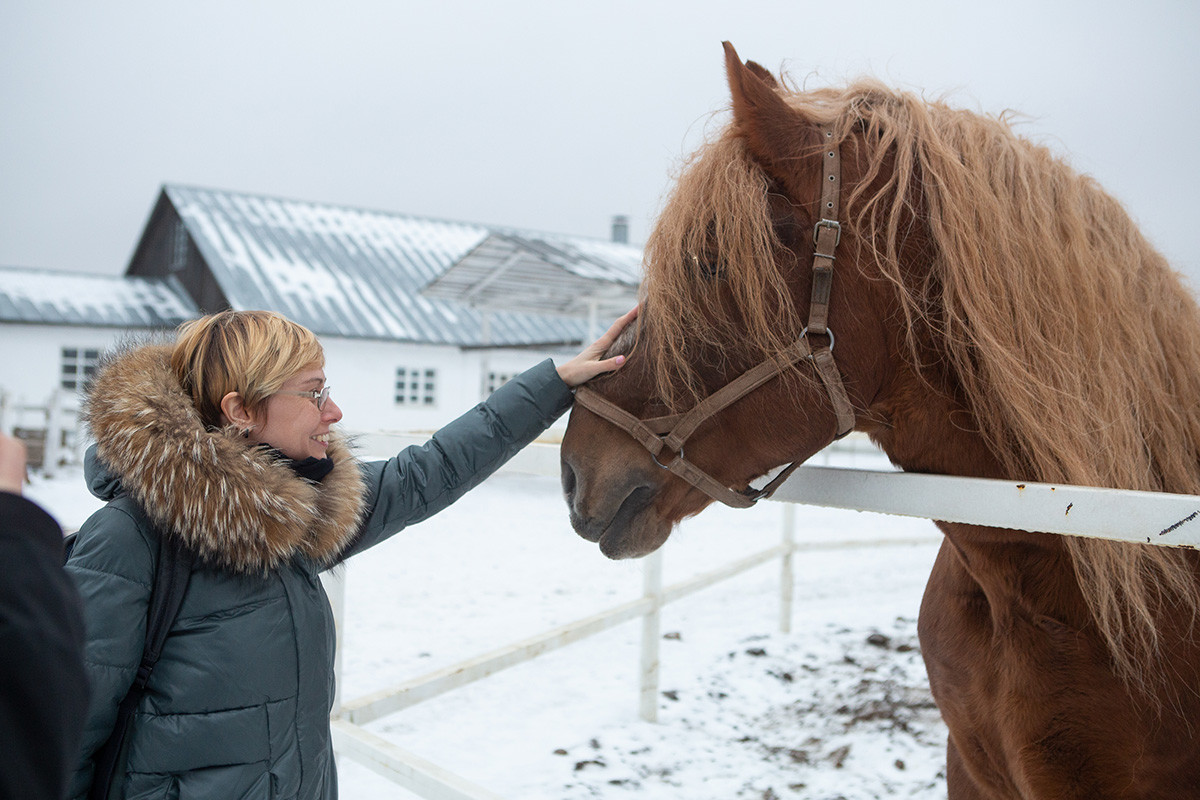
In his “slightly over 70” years of age, he looks very energetic and happy, a bit like a fairy tale Father Frost, whom you might see carrying a sack of gifts.
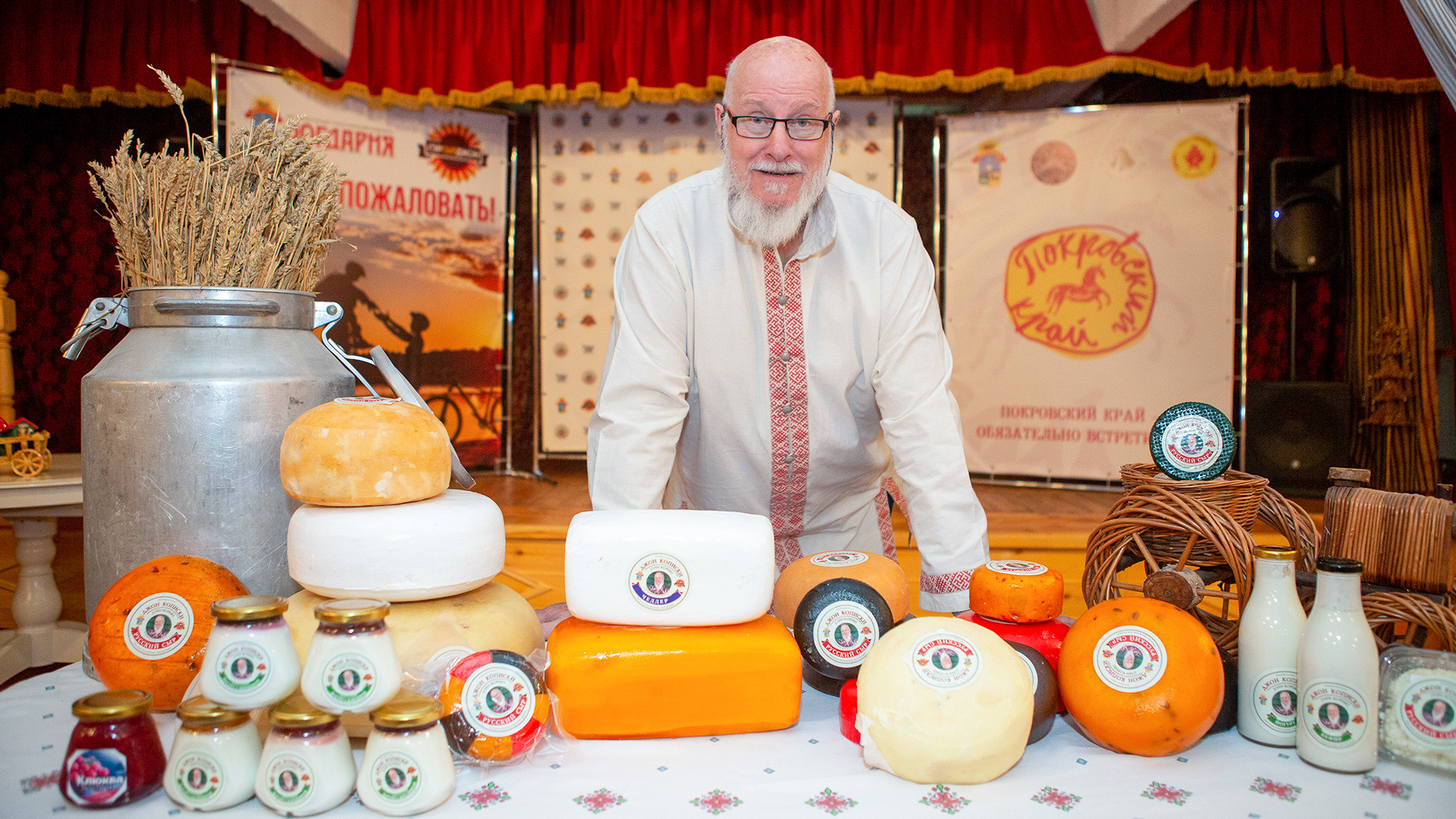
Back in the UK, John was in the coal and metal business. But at 40, he decided to start anew. “I’ve done all I could there,” the farmer says, when asked about it. Fate brought him to Russia in the 1990s, where he felt there was great potential to explore his creative side. It was here that he met Nina and decided to stay, becoming one of the first foreigners to receive Russian citizenship in 1993. Today, together with his wife and kids (five of them), he’s now in the milk and meat business, while also developing his agricultural tourism business: the family owns the ‘Rozhdestvo’ farm several kilometers away, as well as the ‘Bogdarnya’ tourist complex, with its cheese-making plant, stables and restaurant. John can talk endlessly about his livelihood and does so in very good Russian.
Cheese lovers’ paradise
Before the pandemic, Bogdarnya used to get 10,000 tourists annually, including from outside Russia. In 2020, when the flow substantially decreased, the Kopiskis decided to focus on milk products, having opened a cheese-making plant. The cheeses are sold only at a few select stores in Moscow and Vladimir so far, but also online. The prices are in line with other quality Russian cheeses - which actually means they’re quite competitive. The business has only been growing ever since. People are buying the cheeses, which John believes speaks to the high quality of his product. “In order to produce one kilo of cheese, we use 13 liters of our milk and refrain from using any chemical additives or palm oil. The price of the milk alone is 400 rubles (approx. $6), not including the associated costs. For that reason, we are unable to sell our cheese for cheaper than 800 rubles per kilo”, John says, as he offers us a tasty sample.
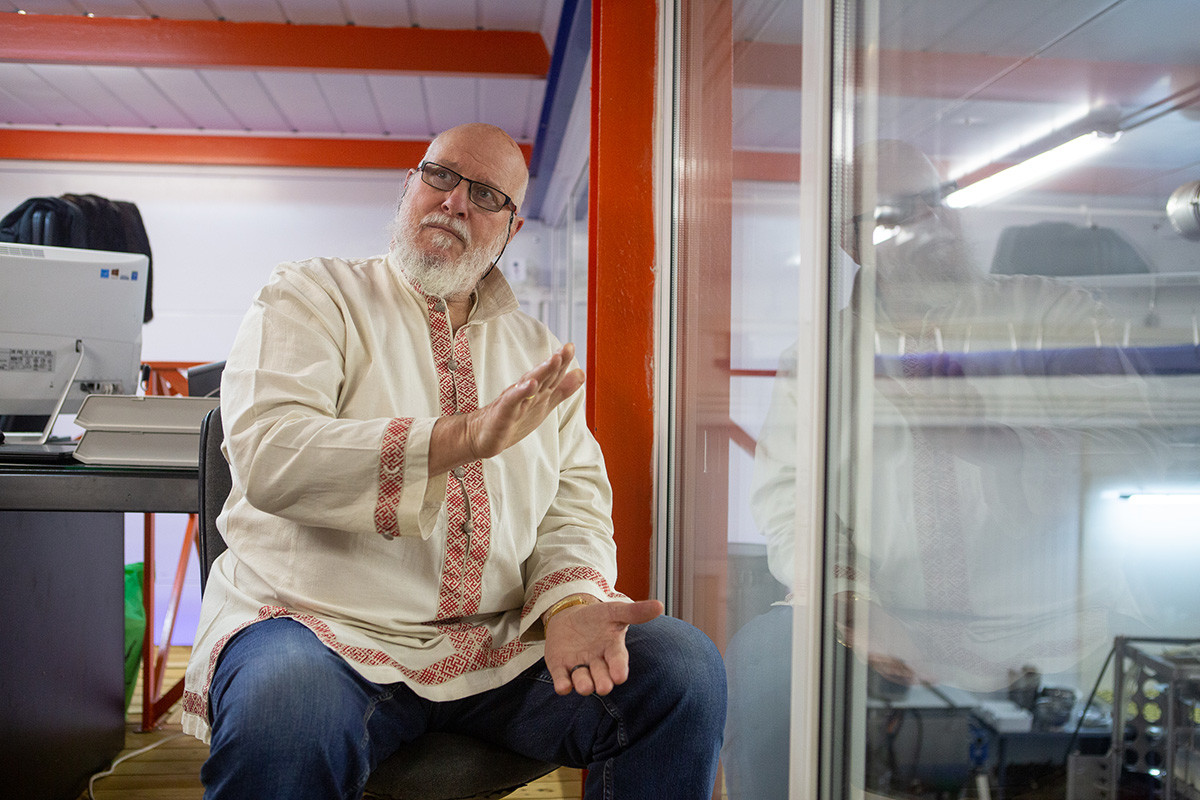
Some 30 different cheeses are made at Bogdarnya, using European standards of cheese-making. The hardest of them - the ‘Johnozan’, is matured for five months, coming out looking like Parmesan. Then there’s the strong orange ‘Red October’, the semi-hard salty and puckered ‘Tovarisch’, and the ‘Sun Blue’ with mould, which gets used to make amazing ice-cream as well. But perhaps the most interesting of them all is ‘Shambala’, with fenugreek seeds. “It’s our most popular one,” John says, smiling. “It gets bought the most.”
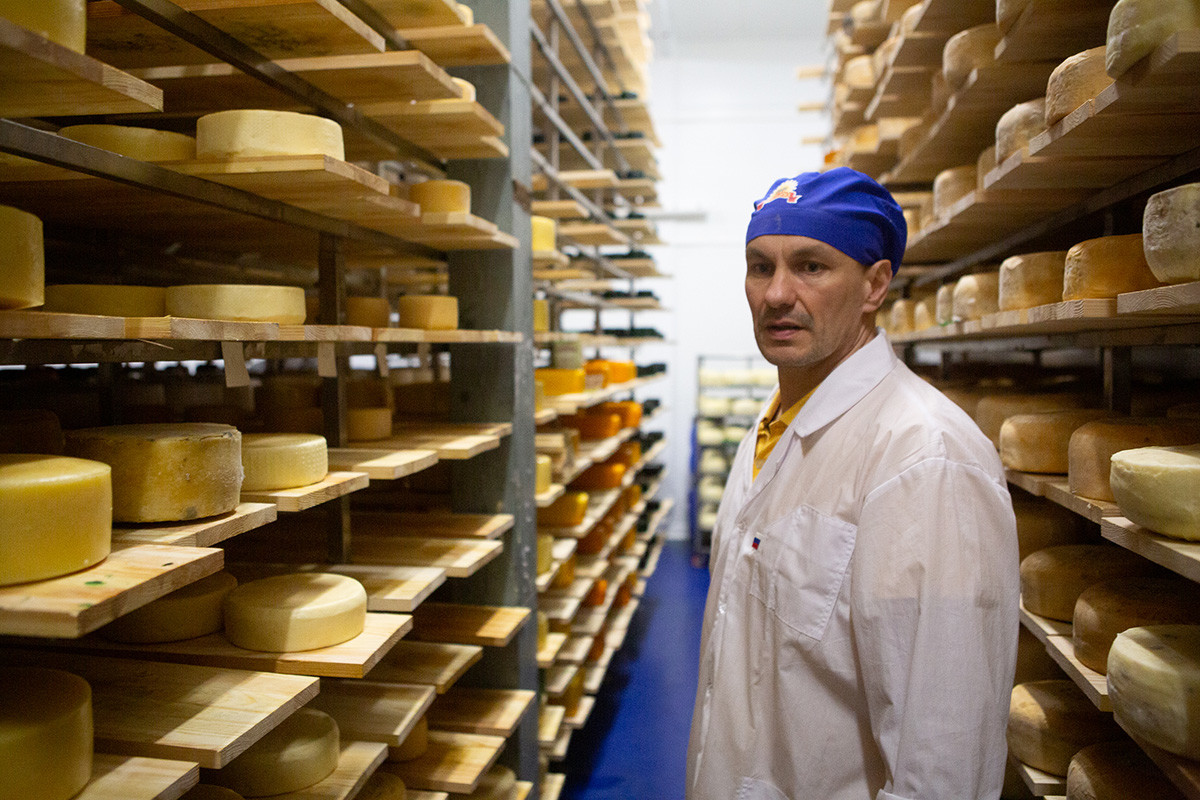
Aside from designer cheeses, the farm also makes Gouda, Cheddar and Cacciato. John isn’t a big fan of Mozzarella and Chechil, however: “I don’t understand these cheeses,” he shrugs.
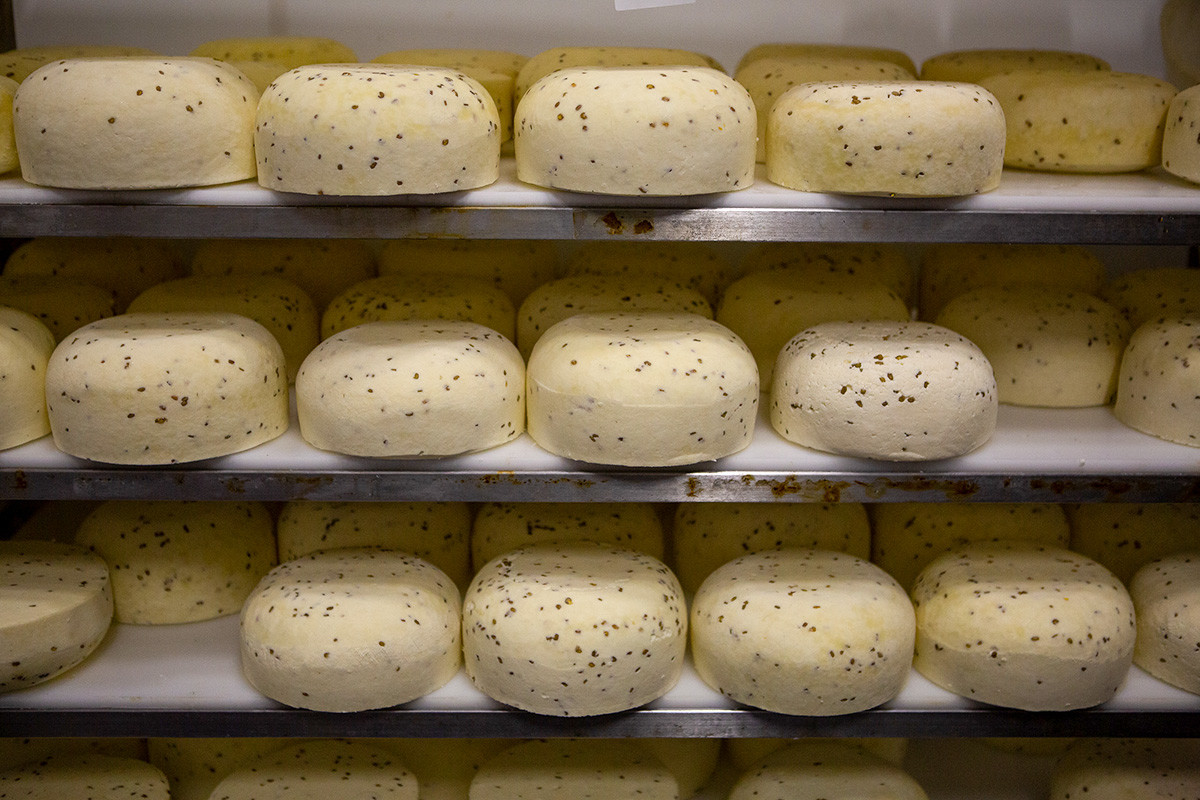
Aside from cheese, local milk gets used for yoghurt, kefir, sour cream, cottage cheese and butter. Part of the milk from ‘Rozhdestvo’ is bought by factories producing baby food.
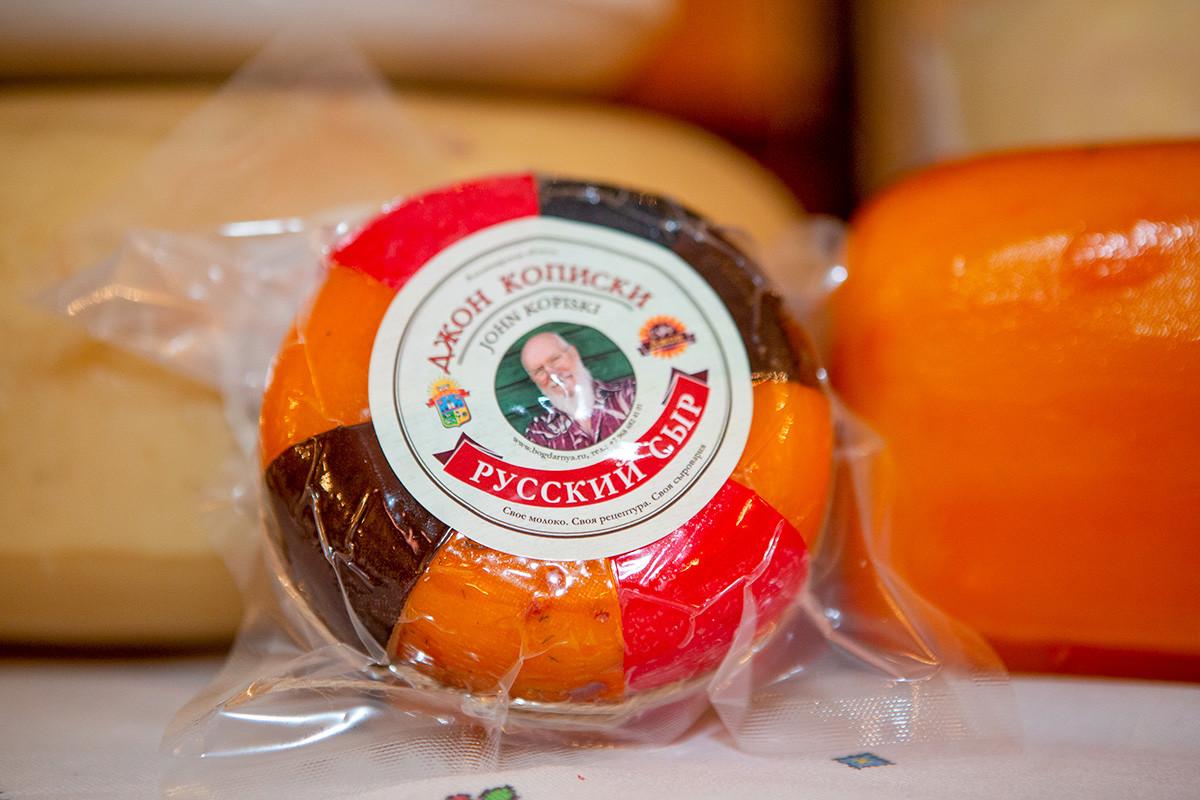
The cowshed-restaurant offers guests the chance to try these milk products in their various forms, as well as ricotta syrniki with semolina instead of flour and cheesecake using John’s own recipe: a cream cheese paste is spread over a shortcrust pastry base, then frozen. Some of these soft and light desserts even made it onto the ‘Gastronomical Map of Russia’ in 2020.
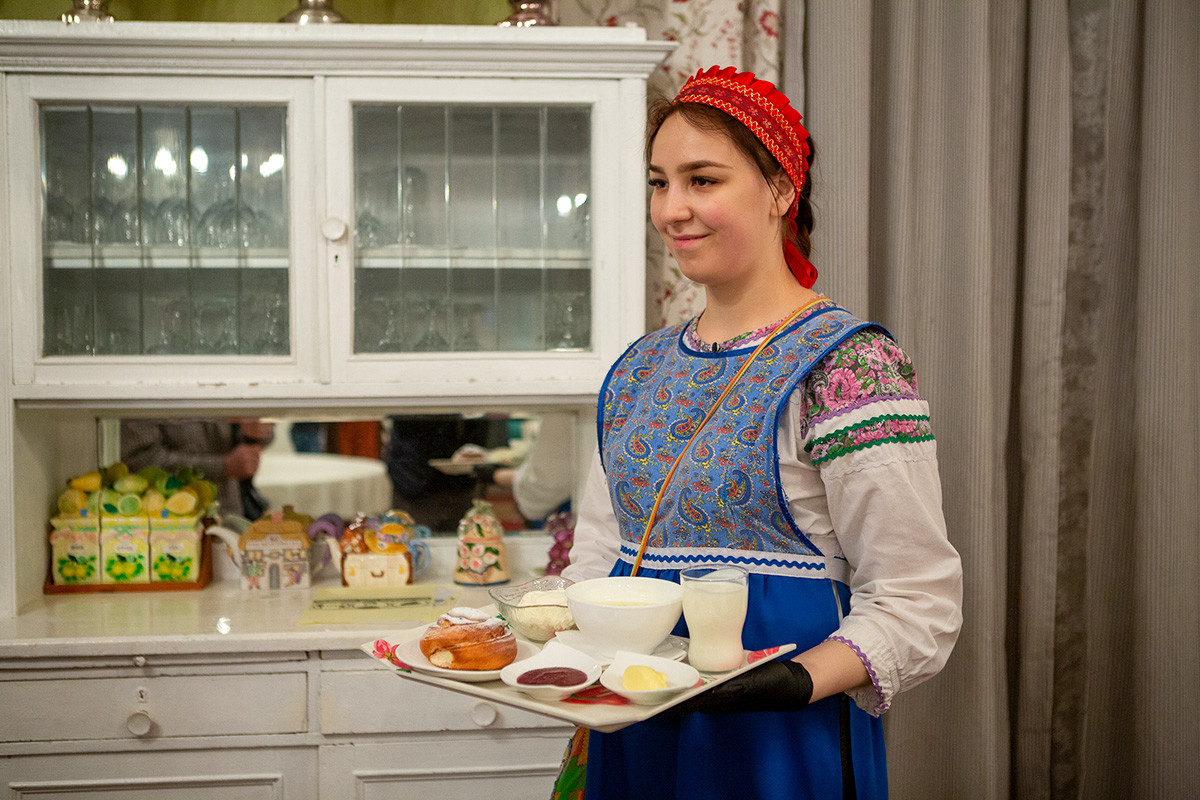
Family farm
John and Nina are joined by their sons in tending to the farm, which makes the parents very happy. Vasily, 23, does steak-making masterclasses for guests. He’s a real pro. “All our meat is dry aged, even the mince. And you don’t need to have it over fire, they’re ready in practically two minutes,” he says, while checking a piece of steak with a special thermometer.
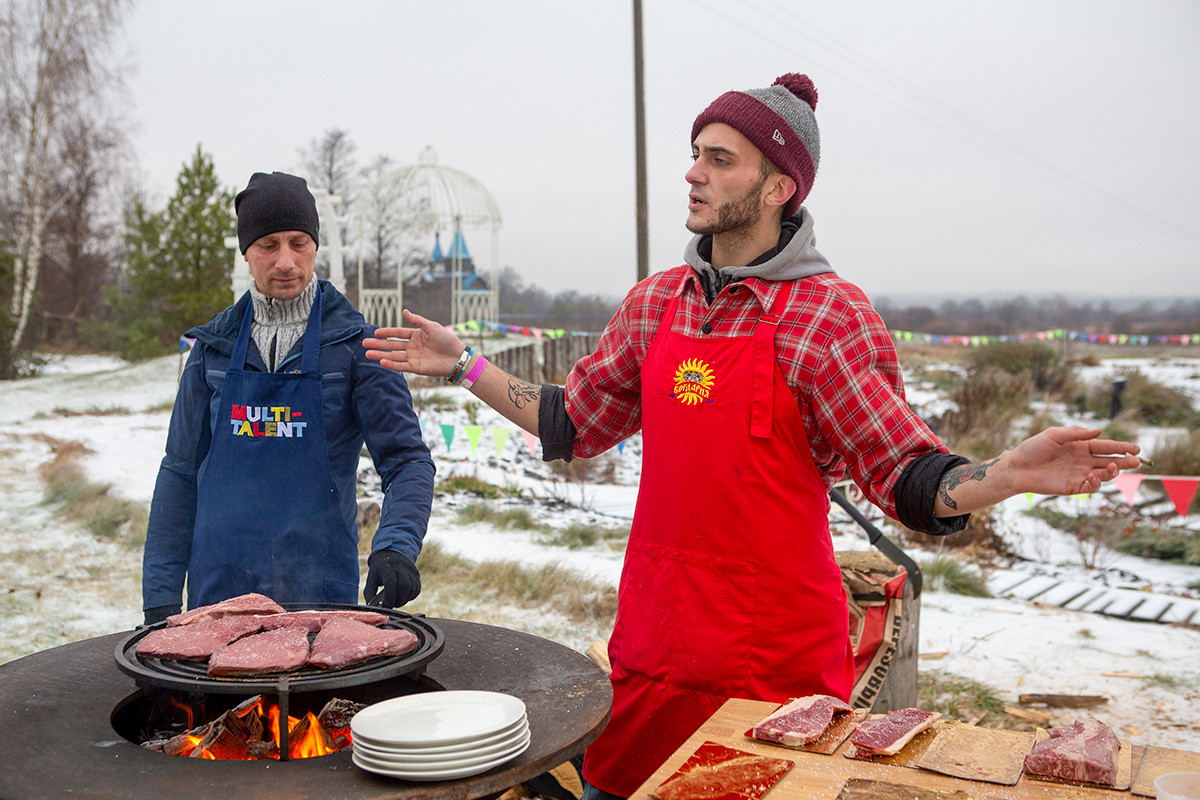
“After the grill, the meat is wrapped in tinfoil and let sit for a while, then it comes out really nice.” For the seasoning, cracked sea salt is enough. Pepper is added to taste. Vasiliy confesses that his diet has for most of his life consisted only of meat, milk products and bread that the family farm produces, and that he’s never had any complaints and feels wonderful.
If using any of Russia Beyond's content, partly or in full, always provide an active hyperlink to the original material.
Subscribe
to our newsletter!
Get the week's best stories straight to your inbox